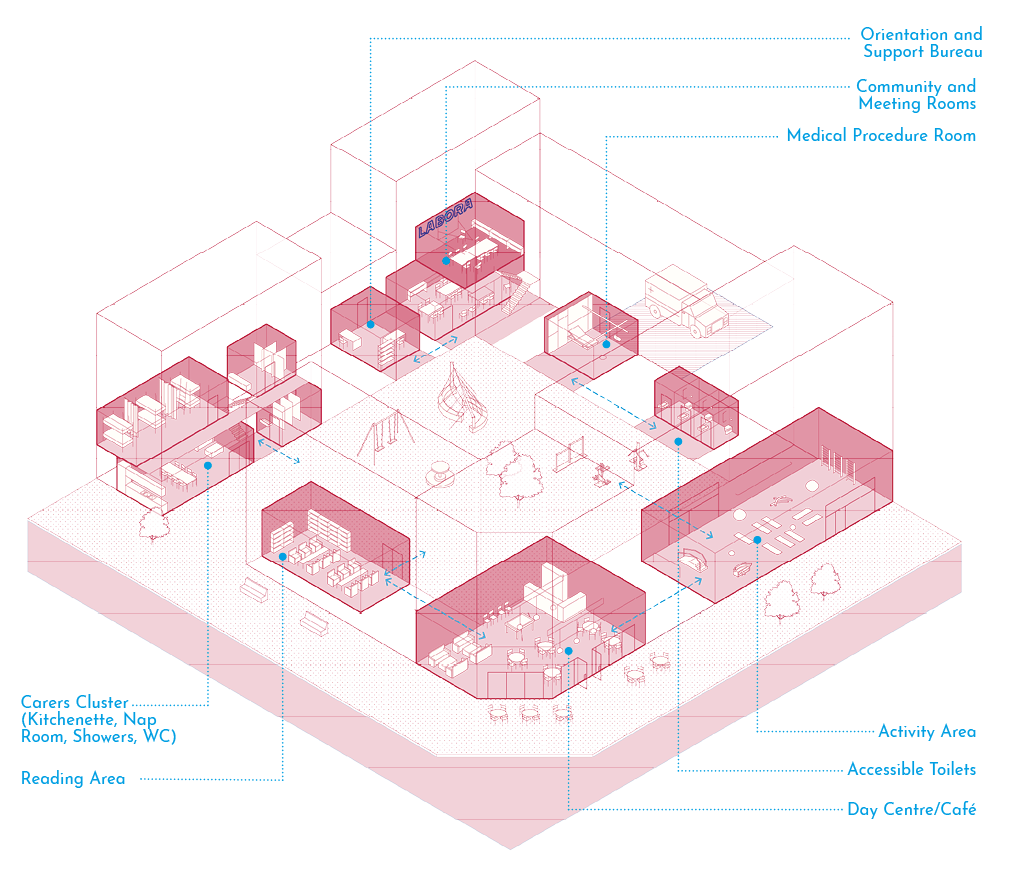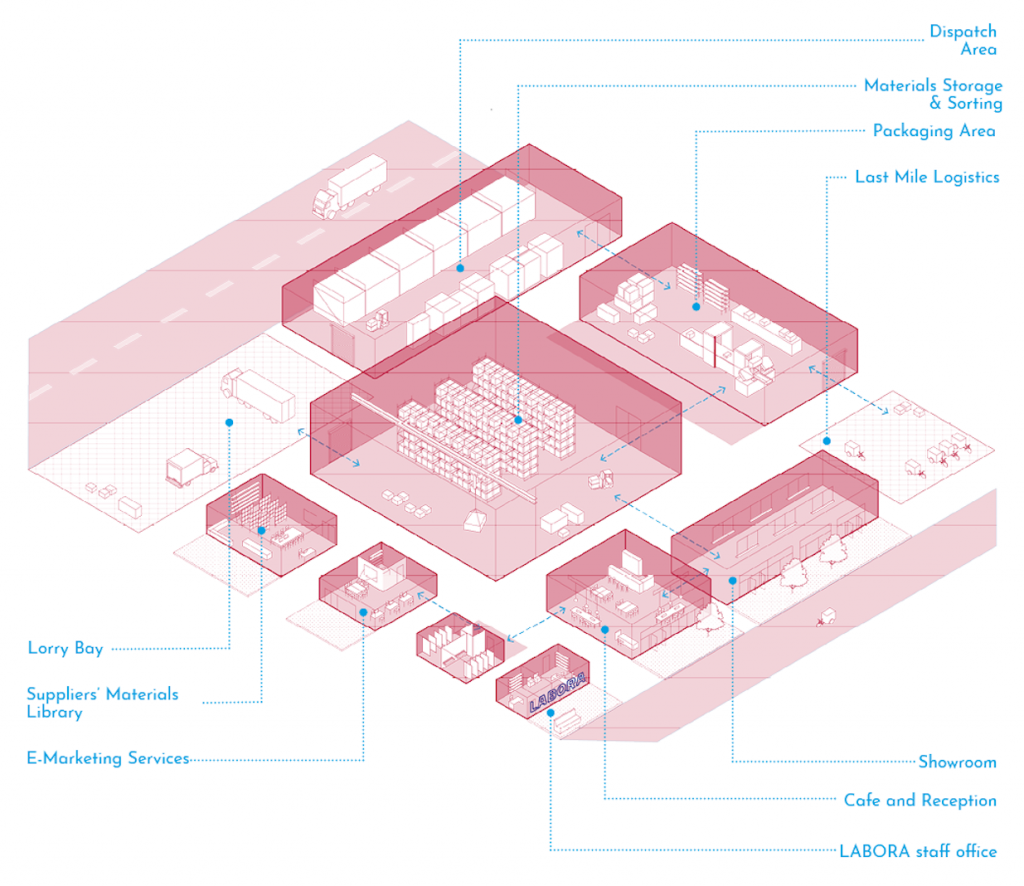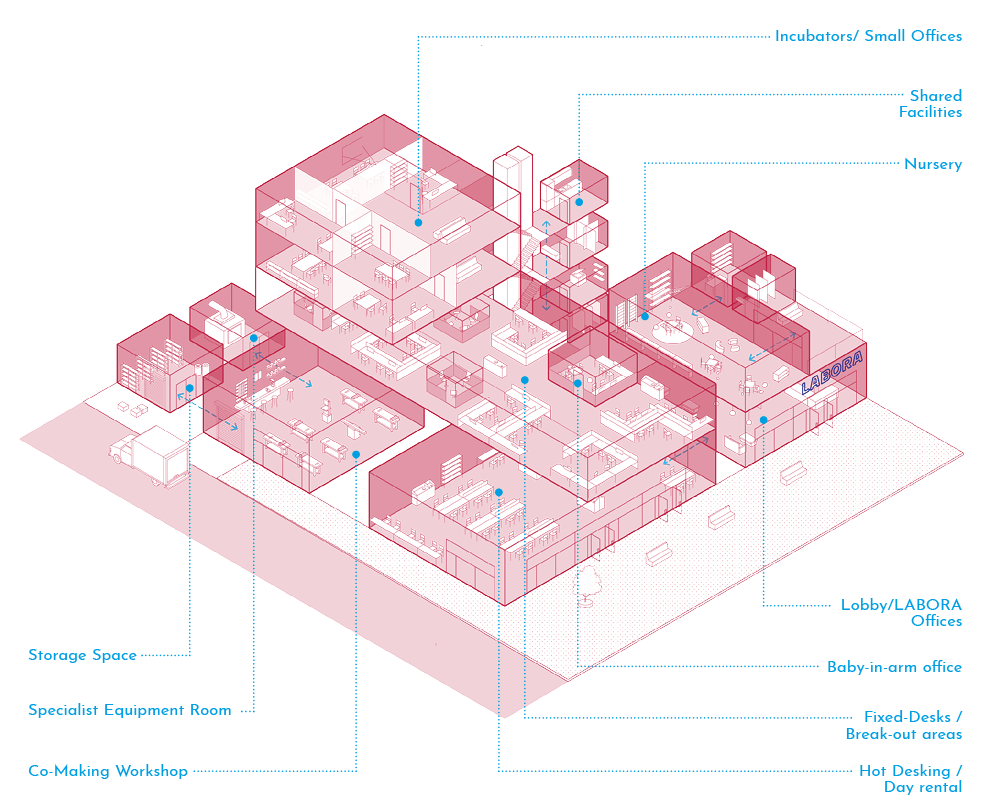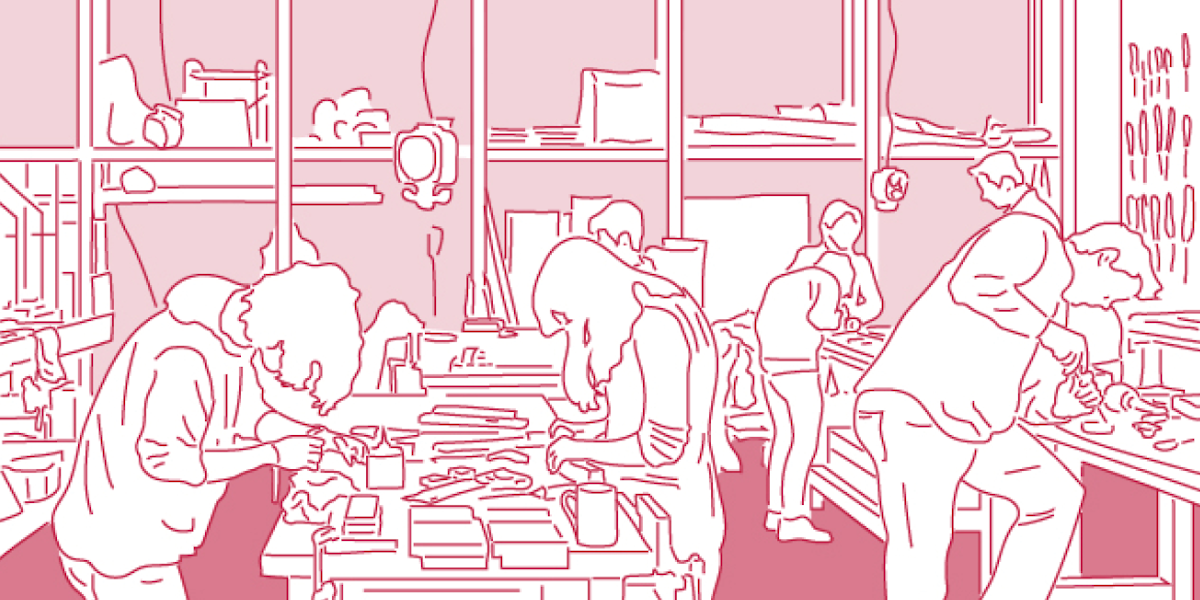In 2019, Autonomy – a UK-based think tank that focuses on the future of work and economic planning – was tasked with developing a strategy to future-proof the economy of the Comunidad Valenciana, one of Spain’s largest regions. The report was commissioned by the region’s employment service, SERVEF which had recently changed its name to a catchier “LABORA”. Employment secretary Enric Nomdedeu and his team were working to rid the service (the equivalent of our Jobcentre Plus) of its negative connotations and lack of agency. As this article outlines, we made a series of proposals outlining how local and regional authorities could radically rethink work. But these don’t just apply to Valencia – they could be a blueprint for municipalities everywhere.
A strategy to ground the Valencian economy
In February 2019 we visited Valencia, guided by Joan – the architect of our collaboration with the region – and Ramon, who was heading the efforts to regenerate the city’s waterfront. As he walked us across the vast empty shell of a Formula 1 track towards David Chipperfield’s America’s Cup building, Ramon explained that the city was in the process of emancipating itself from two decades of events-based speculative planning practices and tourist-driven development. Voted in on a socialist and ecologist ticket, Joan and the rest of Nomdedeus’ team represented a shift away from the low-value and precarious forms employment these policies gave rise to.
The proposals developed for LABORA departed from a simple premise – that the most concrete opportunities to encourage good employment in the region lie in confronting the enormous challenges posed by climate change and an ageing population. Bolstering the social care sector and reinforcing a local, everyday economy represent a far safer path than investing in shock-prone or seasonal sectors like tourism or high-tech.
In the report we suggest first identifying what is –or will be– foundational to the Valencian economy and then moving to protect it from the instability and extractive practices of the market. This would require the ministry to expand and partially re-center its scope, towards a more active role – as regulator, funder and stakeholder.
The proposals included the creation –in partnership with community bodies – of a set of spaces, hardware and services for workers: New Foundational Infrastructures (NFIs). These would establish a de-commodified ‘zone’ in which workers and small enterprises can find support and where cooperative and community based models have the tools to grow.
The illustrated proposals focus on three increasingly critical parts of the region’s economy: eldercare, SME logistics and desk-work. Though responding to different needs and conditions, they share a common logic and set of ambitions: community ownership, worker control, public funding and place-based strategies. They articulate the vision for a future where, instead of being commodities, workspace, equipment and infrastructure are shared assets of a commons of work and enterprise.
As we plan for recovery after the pandemic, we have been working to adapt these proposals to a UK context. NFIs are proving to be a useful framework: a global economic slow-down along with the looming prospect of Brexit, are making strategies anchored in place and focused on building community resilience more urgent than ever. If we can understand how an approach first conceptualised in the South of Spain can work in a fundamentally different context of Brexit Britain, we can push our thinking on how such policies could be translated adopted by municipalities in very different contexts
Democratising eldercare
Spain is aging at a faster rate than most of Europe. Rather than a threat, we recommended treating this trend as the opportunity for safe investment and for making care a high-value sector of the Valencian Community’s economy. Models of care delivery premised on worker ownership and community involvement can make eldercare the site of radical social innovation. Our centres de cura continuada (long term care centres – LTCCs) try to imagine how and where this might take place.
Combining day-care facility and worker center, the LTCCs try to attract as many different individuals involved in care as possible – to fight the isolation, invisibility and atomisation of caring and ageing in the home. This is anchored in responding to tangible needs: the buildings we proposed house services for domestic care-workers, from nap rooms to kitchenettes, as well as services for unpaid carers, the elderly and public health workers.

Most care-work is off the employment service’s radar. A LABORA employee explained that when it’s not done for free by a family-memeber, this work is usually word of mouth, cash-in-hand and often performed by undocumented migrants. The question of how to support workers that are isolated and would often rather not interact with official bodies, makes community ownership even more crucial. LABORA – we suggested – would have to work closely with the region’s newly formed servicio de inclusion social (SIS) to establish partnerships with local care cooperatives and community groups.
In a UK context, these types of collaborations would be key in building a service for a diverse and often fragmented social body. Religious groups, migrant social clubs and other community groups represent a fundamental resource, where intergenerational support networks are lacking. It is for this same reason that adapting our designs to a UK context has involved placing a greater accent on spaces for conviviality and strategies for fighting loneliness.
In many ways, the need to develop structures of care between the home and the hospital is even more urgent in the UK than in the Valencian region. Though work in the private home-care sector is equally undervalued and precarious, family support networks are much weaker and NHS facilities are no longer capable of making space for the needs of ageing adults. The association of old age with illness and death is something we need to overcome across all our societies. This work can start from disentangling these realms in urban space.
Networked Logistics
The expansion of online markets and retail is placing new demands on infrastructure and businesses in the Comunidad Valenciana. As multinational and privately-owned logistics systems like Amazon keep expanding, smaller businesses (SMEs) in the region struggle to access online markets on fair terms or at all.
To address issues connected to size and capacity, we proposed housing a set of in-person and logistics services in buildings – at the edge of towns and neighbourhoods, and connected to larger transit points. The role of these new structures would be to give small businesses access to larger supply chains, help them access new markets and enable a fair transition to sustainable practices.

Enric’s team explained that over the years a large amount of EU funding had been directed at educational and re-skilling programs and incentives, but the fact that so many of the region’s businesses were small craft and manufacturing enterprises – often led by a cohort of older and poorly educated entrepreneurs– meant that these efforts were ignored or unsuccessful.
We suggested a different approach: rather than train individuals in marketing or translation, these should be offered as a set of low cost-services. Despite being essential to making a business competitive, setting up a website, packaging products or accounting are all non-core tasks if your occupation is, for example, making jewellery.
The proposed combination of logistics hardware and digital services mimics contemporary online platforms, allowing small actors to join much larger pools of buyers and sellers.
This capacity to unite and share –orders, fleets of vehicles, storage space, accountants– is also a path to reducing the environmental impact of small business. While lorry bays attract heavier traffic and facilitate completion of deliveries with green vehicles, the packaging and dispatch facilities offer an alternative approach to waste management. They centralize and streamline a central – and polluting – part of online trade, relieving small businesses of the responsibility of ‘doing the right thing’. Dispatch might not sound sexy, but can help address key questions of how you both support a grounded and plural local economy whilst also working to reduce a key aspect of their ecological footprint.
SME centres ask how smaller players and communities can participate in the advantages of online trade and logistics, developing a human-scale interface in an urban context. In the UK this question would necessarily have to be articulated in relation to high-streets and their role in the future: despite being essential to the social life and health of communities, they have ceased to work economically. As they face the peak of a decades-long crisis, the road is open for developing an alternative understanding of their place in people’s lives as well as the supply chains it is in touch with.
Flexible work: Open workspace
Self-directed, independent and remote desk-work are a growing reality in Valencia’s major cities. The higher number of start-ups, digital skills and workers, however, has not been matched by a flexible workspace offer. We proposed that, along with other organisations, LABORA create a range of flexible work-spaces where small businesses and self-employed individuals share resources and space. These structures would anticipate the arrival of – and provide alternatives to – private provision of co-working space: companies like WeWork have a narrow understanding of the type of work and worker these spaces should house, meaning that many are excluded. Access to an inclusive set of spaces and – for all types of workers and specific contexts – can encourage the formation of a commons of work anchored in place and solidarity.
Aiming to bring a diverse range of employment realities together, the proposals include co-working space, business incubators, creative studios, makerspaces and shared workshops. Spaces for conviviality, child care and food preparation to make sure the needs and rhythms of all workers are considered, while flexible leasing strategies would allow users to reduce the risks of long term contracts and owning resources, helping businesses adapt and take risks.

In March 2020, as the lockdown began changing our working habits, we began adapting the Open Workspace proposal to the prospect of a large scale shift towards remote work. We expanded what we had developed for LABORA, adding programs and initiatives aimed at including the growing number of remote workers in its pool of users (and their employers in its pool of funders).
In many instances, remote work might outlive the need for social distancing. But it does not have to mean work-from-home. Councils should work with workspace providers to offer people the possibility of remaining in their neighbourhoods for most or all of their working week, allowing them to avoid commuting and contribute fully to their area’s life and economy.
The working hubs in our remote work report include spaces dedicated to one-on-one support sessions, from housing to mental health, to legal advice and accounting. No longer under the direct control of employers, these workspaces could facilitate and house an expanded diffusion and dissemination of union, council, community and health services into everyday spaces of work. These spaces aren’t just about making work easier or nicer, they provide a durable infrastructure upon which new political subjectivities can be born and evolve.
Tools for urban democratisation
The types of enterprise and organisations that will be necessary to build a sustainable municipalist urban economy are not given a fair chance. NFIs try to imagine the steps local and national authorities could take at scale – to make sure they can grow and survive. Debbie Bookchin was right to suggest that “municipalism is not about implementing progressive policies, but about returning power to ordinary people”, and there is a danger in reducing down our understanding of municipalism to a set of policy suggestions for local authorities. Autonomy’s proposals try to navigate this difficult terrain, asking what devices can extend and deepen processes that sustainably democratise work and society. In this – not just as an ends, but as a means towards the progressive democratisation of urban life.

